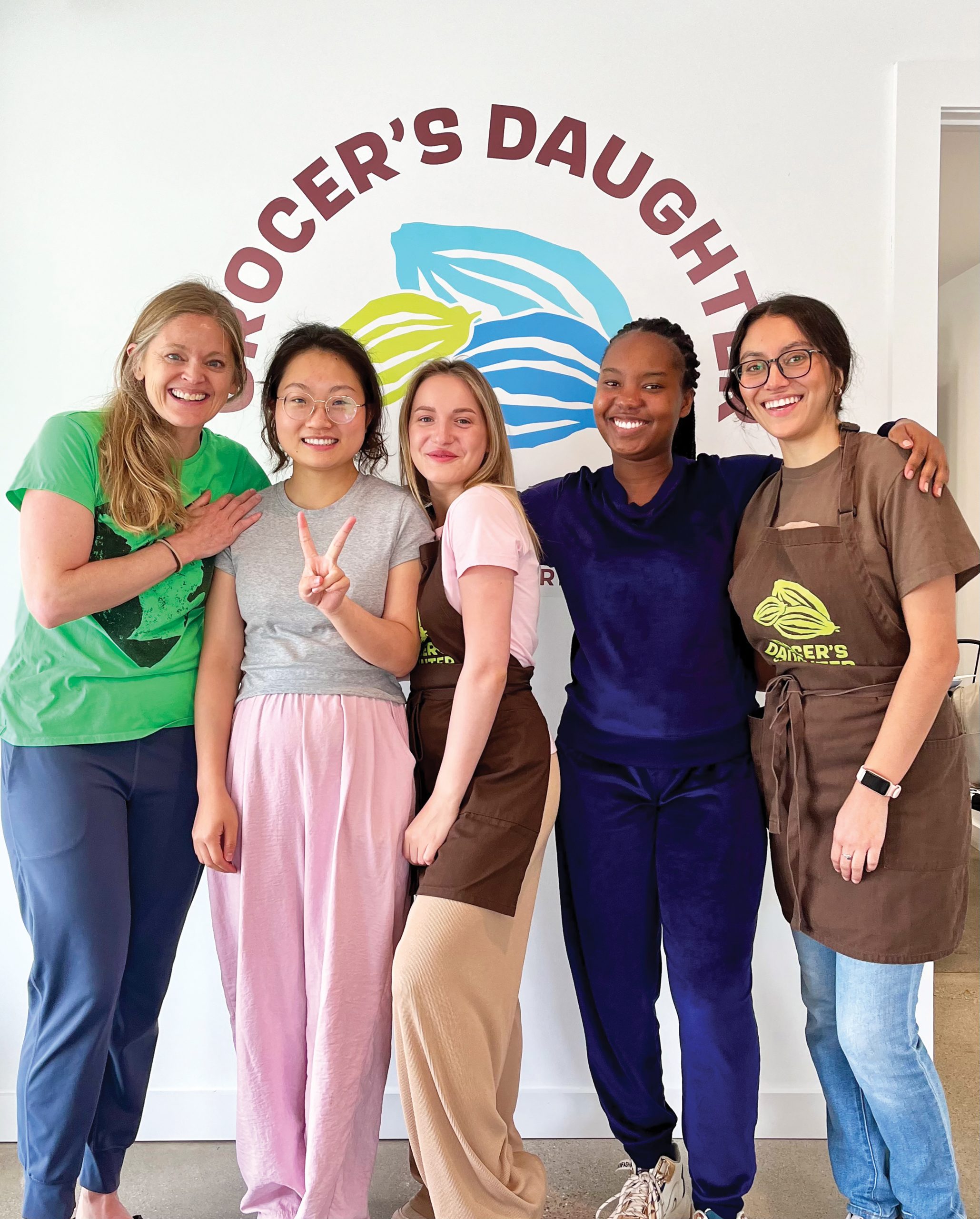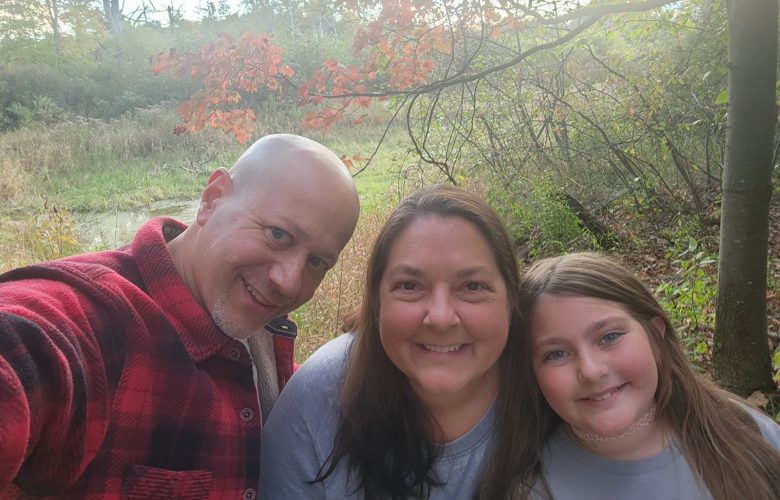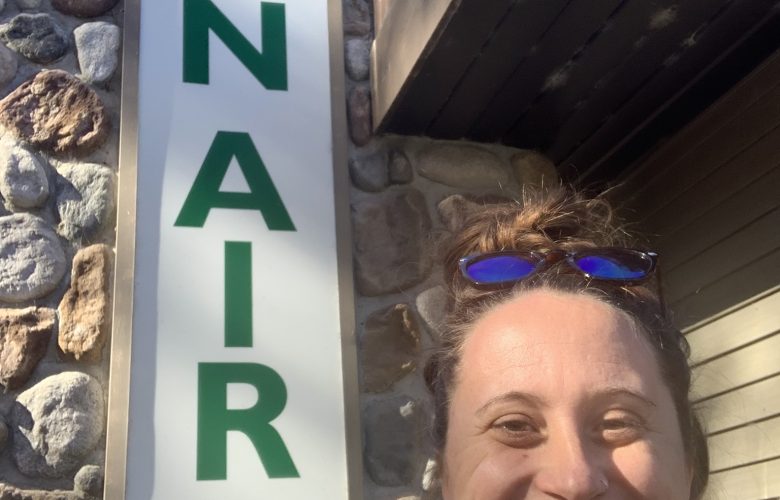Cultural exchange workers help in Benzie and Leelanau counties
By Norm Wheeler
Current Contributor
Thanks to the U.S. Department of State’s J-1 visa—called the “Exchange Visitor” visa program—businesses in Benzie and Leelanau counties have a rich diversity of young folks from all over the world working here through the busy summer season.
Cherry Republic and Anderson’s Market in Glen Arbor, for example, have staff from countries including China, Jordan, and Turkey working through August and into the fall.
Jody Hayden, co-owner of Grocer’s Daughter Chocolate in Empire, explains:
“Last year, we had a part-time J-1 work visa student from Jamaica, sponsored by Anderson’s Market, helping us make gelato and cookies, so we learned about the program through her. She recommended Spirit Exchange, a cultural exchange program that is also a work program. We posted for free on their website, after we were approved through a process where you show that you don’t have enough workers and are not taking jobs away from Americans. You then post job descriptions on their website and wait for applicants. After we posted in March, we got applications right away—working in a chocolate shop in Northern Michigan must have sounded interesting!”
Hayden continues:
“We got resumes from four young women, including their educational backgrounds and a video showing their English skills. We must provide housing, and they pay around $130 per week for rent, but they can work some of that off by cleaning. All four have been great; we feel so fortunate that they’re here, we’ve learned so much from them, and now we want to go visit them in their home countries! They’re so well educated, they are multilingual, and even though they say they are lucky, we are really the lucky ones!”
What Is a J-1 Visa?
In general, a citizen of a foreign country who wants entry to the United States must first be granted a visa—a nonimmigrant visa for a temporary stay or an immigrant visa to permanently move here. Exchange Visitor (J) visas fall under the “nonimmigrant visa” category and are for people who have been approved to participate in Exchange Visitor programs.
Exchange Visitor categories include: au pair and educare, camp counselor, government visitor, intern, international visitor (for Department of State use), physician, professor and research scholar, short-term scholar, specialist, student (college/university or secondary school), teacher, trainee, and summer work travel, which is for college and university students who are enrolled full time and pursuing studies at post-secondary accredited academic institutions located outside the United States.
According to the State Department website, these students come to share their culture and ideas through temporary work and travel opportunities: the “program provides foreign students with an opportunity to live and work in the United States during their summer vacation from college or university to experience and to be exposed to the people and way of life in the United States.”
Established in 1961, the J-1 visa is a “leading public diplomacy initiative to promote and facilitate opportunities for cultural understanding and educational exchange,” according to Cultural Vistas, a 501(c)(3) nonprofit organization—based in Washington, D.C.—that has facilitated internships and professional exchange programs since 1963, two years after the J-1 visa came into being. The description on Cultural Vistas’ website continues:
“The BridgeUSA program, as it is known, allows foreign nationals to advance their careers by participating in internships, research and development, workforce development, training, and knowledge-sharing programs in their fields or industries in the United States for the purpose of fostering mutual understanding and collaboration.”
The program is meant to facilitate global understanding through these cross-cultural opportunities, and all Exchange Visitors are expected to return to their home country upon completion of the program, with an emphasis on sharing their experiences once back home. (However, if an Exchange Visitor’s plans change while they are here in the United States—for instance, maybe they receive a job offer—that individual may be able to request a change in their nonimmigrant status through the U.S. Citizenship and Immigration Services.)
Summer Jobs in Northern Michigan
Using her English name “Daisy,” one young woman in the Grocer’s Daughter gelato shop comes from the Sichuan Province in China. She is from Cangxi County and lives in a city of around 500,000 people. She is a student at Shanghai Normal University where she is studying to be an English teacher. Daisy learned about Grocer’s Daughter Chocolate through an international program called Summer Work & Travel.
“I chose Empire, because of the Sleeping Bear Dunes and Lake Michigan,” Daisy says. “Making gelato sounded interesting, and the salary is very suitable for me. Everybody is so nice, I feel lucky to be here.”
When asked about the differences she has noticed, Daisy says:
“Your eating habits are so different! Some food is too sweet, some—the sausage—is too salty. Americans don’t eat spicy food like we do. Here, much food is fast food. In China, we have more noodles and rice. Also, the way we greet each other is different. In China, we shake hands; here, you hug. Here, you speak with more enthusiasm and are more nice and friendly, also more patient and helpful. In China, we have less contact with strangers. Here, you have bonfires, picnics, beach parties. Americans know how to enjoy life. Chinese people are so busy making a living, there’s more pressure. Here, you know how to have fun.”
Daisy will return home on September 14 to begin a three-year program to get a Master’s degree in English literature.
Meanwhile, Paula Mena is from Ocana, Colombia. She studies civil engineering at the University Francisco de Paula Santander, with “five years down and one to go.”
“After another year, I will either seek a job as a civil engineer, or join my parents’ business,” Mena explains. “They make clothes—uniforms mostly—with a staff of eight who sew. I want to expand their vision into making other kinds of clothes, not just school uniforms.”
What has Mena noticed since she arrived in Empire?
“How nice people are was unexpected; they want to help me with everything,” says Mena, who also works part time at the Empire EZ Mart gas station and at Joe’s Friendly Tavern.“Empire is like a town in a movie—so comfy and with a beach so close. I will absolutely return. Jody [at Grocer’s Daughter] has been so nice. I feel so lucky!”
Then there is Karina Gaiazova, who comes from Kazan, the largest and capital city of the Republic of Tatarstan in central Russia, where the Volga and the Kazanka rivers meet. She is studying public relations and advertising at Kazan Federal University. She already works with another Russian girl who is a blogger in New York City; they produce online courses in advertising.
“I have been traveling all my life with my family,” Gaiazova says. “I really like new places. This is my first trip alone, from Kazan to Istanbul to Chicago to Traverse City. The Work & Travel Program gave me two options: to go to Moab, Utah—no thanks, too hot!—or take a random assignment in Empire. I was looking for something in a big city, a way to see America and the people, but when I checked out Empire and [Grocer’s Daughter Chocolate] online, and Jody’s message was so sweet, I decided to come here, and I am so happy!”
Like Mena from Colombia, Gaiazova also works part-time at the EZ Mart gas station and at Joe’s.
What differences has Gaiazova noticed between Empire and Russia?
“Here, everybody drinks water with ice, while in Russia, we always have warm lemon water every morning. Now I’ve switched over to bottles of cold water!” she laughs. “The eight-hour time difference makes it hard to talk to my mother. At first, the house didn’t feel safe, because it didn’t have a big, heavy, double-glass safety door, like in Russia. Here, I feel like a teenager staying with my grandparents in a rural village, where it’s so calm and safe; a place to rest. I am here until October, when I’ll return for two more years of college. I would like to continue my education somewhere outside Russia, but I don’t know where yet. I love the new friends I am making here!”
Over at Laker Shakes in Burdickville, Ellen O’Neill hired Kendese Roberts from Montego Bay, Jamaica. Roberts has studied business for two years at Montego Bay Community College. Next, she will go to Caribbean Maritime University to study maritime tourism and then work on a cruise ship. Her J-1 cultural exchange sponsors in Chicago—Spirit Cultural Exchange—placed her in Burdickville.
“It’s very quiet, and I like the green,” Roberts says. “I’m used to city noise, so I like the nature around here. The food is different, kinda flat; it needs spice! We love curried chicken, jerk chicken, jerk pork, rice, and beans. But I love Big Glen Lake!!”
Roberts heads back home on September 12.
Benefit for Businesses
Meanwhile, just over the Leelanau-Benzie county line, this is the second year that Riverside Canoe Trips in Honor has been using J-1 workers. Riverside co-owner Kyle Orr says that he first learned about the program a few years ago through networking, specifically with Crystal Mountain, which utilizes the program, and with the Western Michigan Tour Association, including business owners from Mackinac Island.
“Mackinac would not exist without H-2B and J-1 workers,” Orr says.
He makes note that he has never used H-2B workers, mostly because he sees it as a more complicated process. However, he also notes that the J-1 program has certain facets that distinguish it from the H-2B program.
“They’re all college kids, and there’s a definite distinction between H-2B workers, who work six months here and then six months somewhere else,” he explains. “We have to find them a place to stay. And we’re asked to provide some cultural experiences for them. For us, that has meant taking them out on the pontoon boat on the lake; we’ve taken them to the fair; we’ve taken them to Mackinac Island. This is supposed to be a cultural experience for these kids as much as it’s supposed to be about work—that being said, a lot of them take second jobs, because they’re trying to work as much as they can.”
This summer, Riverside has employed eight Exchange Visitors; they hail from Jamaica, Kazakhstan, Mongolia, Romania, and Ukraine. Most of them come from big cities, so Benzie County’s rural vibe has been a change, and transportation has been a struggle; Orr mentions that they have relied a lot on Benzie Bus.
The Orrs bought a house for the student workers to live in, and the rent is $50 per week.
“Living together and on their own, away from their families, has been an adjustment for them, too,” Orr says. “Dirty dishes, cooking for themselves; I told them, ‘These are things you guys have to work out as adults.’ Ha. It’s like college all over again. I had to buy a second fridge, because now everyone gets their own shelf in the fridge.”
Orr emphasizes that this program has been a much-needed life raft for Riverside to reach full employment.
“The politicians are so worried about ‘jobs being taken away,’ but if I could get [Americans] to fill these jobs, I’d do that,” Orr says. “This program is definitely a bit more work for the businesses who choose to go down this route, but at the end of the day, we are better with them than without. There are hurdles, but we’re learning, and there are a couple of other local businesses that are probably going to go this route, because they can’t find people here. We’ve already had our on-boarding meeting to get people [through this program again] for next year.”
In Beulah, there are four J-1 student workers this summer at The Cherry Hut: two from Mongolia, one from Spain, and one from Kazakhstan.
“They’ve been a great addition to our staff,” says Andy Case, co-owner of The Cherry Hut. “They are all exceptional people and great workers. Scheduling is always a challenge for The Cherry Hut, so having four workers that are available to work any shift you assign them has really been a huge positive. They are quite eager to learn about our American lifestyle, so we try to plan as many fun outings as we can.
He continues:
“This last Tuesday we brought them all—with the rest of our staff—for an appreciation day trip to Mackinac Island. They thought it was the highlight of their summer, other than working at The Cherry Hut, of course. We would definitely welcome them back, if they were interested in another season in Northern Michigan.”
Over in Thompsonville, Crystal Mountain has been using the J-1 visa program consistently with about 35 people in the summer and 35 people in the winter since 2021; the resort had been using the program before the pandemic sporadically, but it became consistent after the pandemic. (Note: In the winter, students come from Southern Hemisphere countries, where it is their summer when it is our winter here in the Northern Hemisphere.)
This summer, workers hail from Bulgaria, China, Hungary, Jamaica, Lithuania, Mongolia, Slovenia, Spain, Taiwan, Thailand, Turkey, Ukraine, and VietNam. Workers live at Crystal Mountain in temporary housing on the property.
As for the cultural aspect of the program, Agnes McNeil, human resources (HR) manager at Crystal Mountain and liaison for the program, says:
“We have a welcome event for both the summer and the winter seasons. For the summer, that welcome event is normally a pool party, and the winter event is typically a snow-sports lesson, because most of them are coming from countries where they have never seen snow before, and it’s good for them to have a lesson on skis or a snowboard before they go out on the hill.”
During the summer, Exchange Visitors also get to experience the National Cherry Festival in Traverse City, as well as a Pit Spitters baseball game; during the winter, they attend a Super Bowl party and play laser tag. During both seasons, there is a potluck event.
“This is exciting for them, because they get to bring their own spices or ingredients from their home country to share their family recipes,” McNeil explains.
When asked what she thinks are the biggest benefits of the program, McNeil responds:
“The cultural exchange. A lot of them are coming from places where the average person would not get a chance to travel to, so this can be the closest that someone here might get to China or Peru or Thailand; they get to meet other cultures right at their own doorstep. I think that helps to make everyone a little more open.”
So when you get your mint gelato in Empire or your chocolate malt in Burdickville; get served a Hoppy Bobby at Cherry Republic or check out at Anderson’s Market in Glen Arbor; rent a canoe from Riverside in Honor or take home a pie from The Cherry Hut in Beulah, please greet the variety of working visitors from many countries who have come here to learn from us and to teach us about their corners of the world. We are so lucky to have them!
A version of this article first published in the Glen Arbor Sun, a Leelanau County-based semi-sister publication to The Betsie Current.
Editor’s Note: We have previously written about H-2B visa holders working at Harbor Lights in Frankfort; see The Betsie Current’s online archives. H-2B visas are for businesses, while H-2A visas are for the agricultural industry; according to the Benzie Chamber, Graceland and Smeltzer’s are examples of the agricultural industry using H-2A visas in our area.
Featured Photo Caption: From left to right: Grocer’s Daughter Chocolate owner Jody Hayden shares a laugh with Daisy from China, Karina Gaiazova from Russia, Shanoya from Jamaica, and Paula Mena from Colombia. Photo courtesy of the Glen Arbor Sun.




